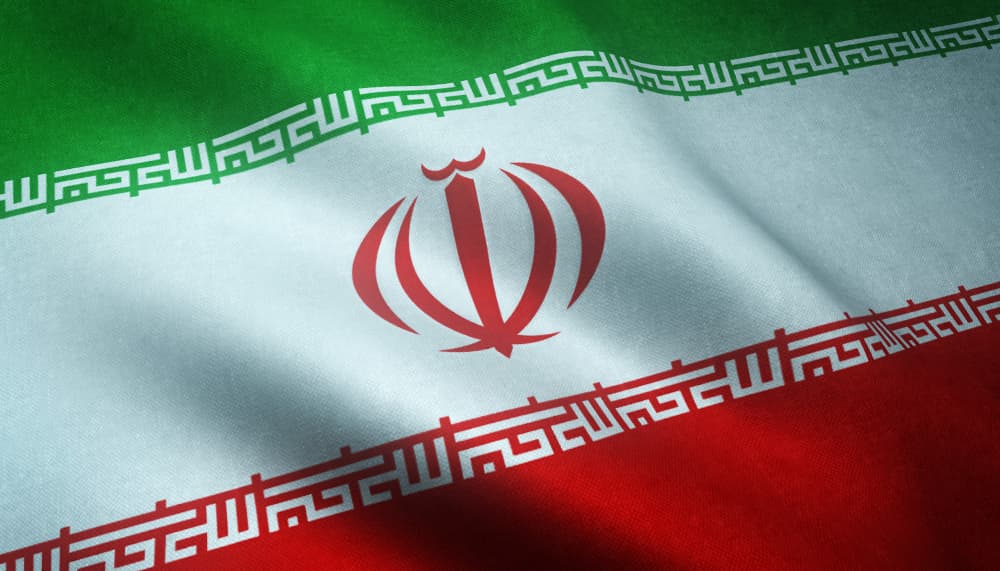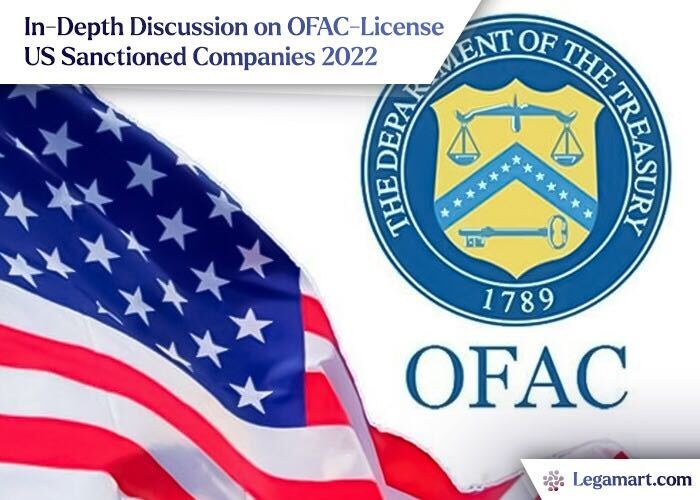- Introduction
- What are the Types of Sanctions Imposed on Companies in Iran?
- Who Has to Comply With OFAC Sanctions?
- OFAC sanctions apply to whom?
- What is an OFAC License?
- How to Apply for an OFAC License?
- OFAC Sanctions Programs and Country Information
- What is the License Policy in Iran?
- OFAC Compliance Screening Best Practices
- Conclusion
Introduction
The OFAC is a department in the US Treasury responsible for issuing OFAC licenses. The authority is responsible for administering and enforcing economic trade sanctions against states, organizations, and individuals. It was created in 1950 when China entered the Korean war. It has replaced the earlier office of foreign funds control, established in 1940 as a response to Norway’s invasion by the nazis.
The US Treasury Department enforces economic and trade sanctions imposed on other countries and groups of people by the US. Such sanctions are enforced according to a country’s foreign policy and national security objectives. It also imposes those sanctions that are mandated by the United Nations. Such sanctions aim to create pressure on the country which violates international norms so that they conform to acceptable behaviour under international law.
What are the Types of Sanctions Imposed on Companies in Iran?
- They cannot receive assistance from export and import banks.
- The exports to the violating company cease, and the licenses get revoked
- Loans or credit from US financial institutions cannot exceed more than $10 million for 12 months.
- They can’t hold the designation of primary dealer for the debt instrument of the US government.
- They can’t act as an agent of the US.
- Ban on US government procurement opportunities.
- Imports from the violating company are prohibited.
Who Has to Comply With OFAC Sanctions?
OFAC sanctions must be complied by; –
- U.S persons;
- U.S citizens and permanent resident aliens regardless of their location;
- All persons and entities within the U.S; and
- All U.S incorporated entities and their foreign branches
OFAC sanctions apply to whom?
The sanctions apply to:
- U.S Persons, which includes U.S citizens, entities under U.S laws or any of its jurisdiction and permanent resident.
- Non-U.S Companies because of their potential exposure to export goods and services from the U.S or involvement with a U.S person in possibly prohibited transactions with the said person, these can cause violation.
- Non-U.S subsidiaries, these apply to foreign entities or foreign subsidiaries of U.S Companies that are owned and controlled by U.S persons.
What is an OFAC License?
The USA imposes sanctions and prohibits various activities in the country. It comes within the power of OFAC to issue a OFAC license to countries and authorize some activities which are otherwise not allowed under sanctions. The purpose of issuing the OFAC license is to permit those activities in the country that align with US policy.
The jurisdiction of OFAC is over entities with a legally significant nexus with the US. In this case, the entity applying for the license must determine whether it falls under the jurisdiction of OFAC. If they deny the OFAC license application, there will be challenges in questioning the decision in the court. Thus, the applicant must be aware of the probable consequences of applying for a license to OFAC. The information provided in the OFAC license application must be complete and correct to have a better chance of approval for a license.
How to Apply for an OFAC License?
No prescribed form exists for applying for a license to OFAC. As stated on the website of OFAC that the applicant shall check the OFAC license application guideline for the particular embargo program and provide all necessary information in the application while applying for a license. The applicant must disclose the names of the parties concerned or interested in the transaction. It is essential to provide a complete description of the person’s or company’s name and address.
Sudan, Burma, Cuba, and Iran are among the countries sanctioned by NGOs. The NGOs apply for licenses to OFAC. There are specific additional requirements of information for such applications of NGO sanction programs. It is necessary to provide a detailed description of the activities proposed by these NGOs. Apart from that, they will also have to provide information like the full name and nationality of the citizens and the country where the key staff members are residing currently, information related to finances, etc.
The license applications must be mailed or couriered. Licensing depends on the foreign policies and security concerns of the nation. They consult with other federal agencies, such as the US Department of Commerce, the US Department of State, etc. depending on the application and the person to consult. For example, the application for a license involves the export of a particular item, the US Commerce Department would decide whether to grant a license under such circumstances.
The average time taken for the license grant is 77 days. The time is indicative of the time the OFAC decides whether to grant the license or not. Once the agency denies the application for a license, there is no formal appeal process in such a case. But there is a second opportunity for the applicant if they give some additional material to prove why they are entitled to the license. If the applicant still wants to question the denial of a license by the OFAC, he must go through the judicial process. Appeals can be filed against arbitrary decisions in a court of law.
In such cases, the standard of proof is so high that it is tough to prove such contentions made by an applicant.
OFAC ensures that the terms of the license are sincerely adhered to once the license has been granted. The OFAC has the power to conduct due diligence and require a report post-granting of a license if there is doubt about the information provided or the compliance made after the grant.
OFAC Sanctions Programs and Country Information
Various sanction programs are administered by OFAC and the active ones include;
- Cuba, Iran, North Korea, Syria, Russia and part of Ukrain (Crimea, Donetsk and Luhansk). Transactions in these countries involving persons and entities as well as ordinary residents require an OFAC License.
- Balkans, Belarus, Burma, Central Africa Republic, Democratic Republic of Congo, Ethiopia, Hong Kong, Iraq, Lebanon, Sudan, Venezuela, Yemen and Zimbabwe. In these countries, OFAC sanctions is limited to transactions relating to certain activities relating to specific parties.
- Afghanistan, Belarus, Central Africa Republic, China Cub-a, Cote d’Ivoire, Democratic Republic of Congo, Cyprus, Eritrea, Haiti, Iran, Iraq, Lebanon, Liberia Lybia, North Korea, Somalia, South Sudan, Sri Lanka, Sudan Syria, Venezuela, Vietnam and Zimbabwe. Exportion of military equipments, technical data and space equipments are prohibited from U.S to these countries or their foreign nationals.
What is the License Policy in Iran?

OFAC has issued a policy under which US persons seeking licenses to engage in activities with Iran are allowed in certain areas such as human rights, humanitarian and democracy-related activities. It applies to the entities which are getting funds from the Department of State, the broadcasting board of governors responsible for non-military, international broadcasting, and US government-sponsored entities and other agencies of the US government, which are appropriate.
An authorization request should be made under this policy and submitted to OFAC as per the Iranian transactions and sanctions regulations, 31 CFR Part 560 (the “ITSR”), and section 501.801 of title 31, code of federal regulations.
OFAC Compliance Screening Best Practices
Stay Current with the Specially Designated Nationals (SDN) list
OFAC sanctions include a list of SDNs, groups, individuals and entities similarly, narcotics traffickers and terrorists who are designated within the program are included. It starts by blocking the assets of SDNs and prohibiting U.S. persons from dealing with the same. In case of any export shipment, the SDN list should be reviewed. Equally, exports or reexports to any party in the list containing suffixes SDGT, SDT, FTO, IRAQ2 or NPWMD, will not be successful without a license.
Use of Restricted Party Screening Software
The 50% Rule
This rule works by blocking 50% or more of the property and interest owned by parties that are sanctioned by OFAC. Equally, the rule applies where at least more than one person under the SDN list owns an entity. This, therefore, means that OFAC compliance screening delves in more than just in people’s names, list of companies and ownership.
Track Entities that Control less than 50%
There are possibilities where companies or individuals’ ownership or control qualify under 50% thus, exporters should be vigilant on the same.
Conclusion
In the wake of sanctions lifted earlier, they were reinstated on Iran post-2018 to create pressure on the Iranian government to stop the progress in the nuclear activities. There are other political agendas associated with it as well. The sanctions have intentionally targeted the most crucial sector of a nation’s growth: energy, shipping, shipbuilding, and the financial sector.
There has been a huge impact of these sanctions on Iran. Oil manufacturing has been reduced as a result of restricted access to products required for the oil and energy sectors. Their access to technology has also been reduced, adversely impacting their efficiency.
Uncover the steps and procedures for immigration to different nations, with a focus on Turkey to Norway and US to Portugal, in Legamart’s insightful articles.





